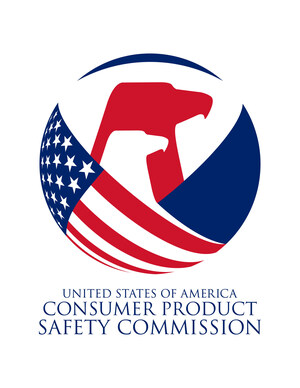Toddlers and Seniors Most Often Injured in Battery-Swallowing Incidents
WASHINGTON, March 23, 2011 /PRNewswire-USNewswire/ -- Small, coin-sized cell batteries can be found in products in nearly every home in America. From the musical greeting card sitting on the table, to the remote control next to the TV, "button batteries" as they are commonly referred to, are in thousands of products used in and around the home. Young children and senior adults are unintentionally swallowing the cell batteries and in some cases, the consequences are immediate and devastating.
(Logo: http://photos.prnewswire.com/prnh/20030904/USCSCLOGO)
A recent study conducted by Dr. Toby Litovitz of the National Capital Poison Center found that cell battery-related incidents resulting in severe injury and fatality have increased sevenfold since 1985. The majority of reported incidents involve 20 mm diameter, or larger, 3 volt batteries. Occasionally, a swallowed battery will pass through the intestine. Most often, however, batteries that become lodged in the throat or intestine can generate and release hydroxide, resulting in dangerous chemical burns.
Incidents most often involve children younger than four years old and senior adults. In the majority of incidents, children gain access to batteries directly from games, toys, calculators, remote controls and other items commonly left within a child's reach. Senior adults have swallowed button batteries used in hearing aids after mistaking them for pills.
Parents often are unaware that a child has swallowed the button battery, which makes it difficult to diagnose the problem. In fact, in the recent study, more than 60 percent of reported incidents initially were misdiagnosed. Symptoms resemble ailments common in children, such as an upset stomach and fever, and in some incidents, there are no symptoms at all.
"These incidents are preventable and CPSC is working to get ahead of this emerging hazard quickly," said CPSC Chairman Inez Tenenbaum. "Our consumer awareness efforts and outreach to the electronics industry are under way."
CPSC has reached out to the electronics industry and battery manufacturers, urging them to develop warnings and industry standards to address this issue.
CPSC recommends the following steps to prevent unintentional battery ingestion:
- Discard button batteries carefully.
- Do not allow children to play with button batteries, and keep button batteries out of your child's reach.
- Caution hearing aid users to keep hearing aids and batteries out of the reach of children.
- Never put button batteries in your mouth for any reason as they are easily swallowed accidentally.
- Always check medications before ingesting them. Adults have swallowed button batteries mistaken for pills or tablets.
- Keep remotes and other electronics out of your child's reach if the battery compartments do not have a screw to secure them. Use tape to help secure the battery compartment.
- If a button battery is ingested, immediately seek medical attention. The National Battery Ingestion Hotline is available anytime at (202) 625-3333 (call collect if necessary), or call your poison center at (800) 222-1222.
How much do you know about button batteries? Take this quiz to find out.
The U.S. Consumer Product Safety Commission is charged with protecting the public from unreasonable risks of injury or death associated with the use of the thousands of consumer products under the agency's jurisdiction. Deaths, injuries and property damage from consumer product incidents cost the nation more than $800 billion annually. The CPSC is committed to protecting consumers and families from products that pose a fire, electrical, chemical, or mechanical hazard. CPSC's work to ensure the safety of consumer products - such as toys, cribs, power tools, cigarette lighters, and household chemicals – contributed to a significant decline in the rate of deaths and injuries associated with consumer products over the past 30 years.
Under federal law, it is illegal to attempt to sell or re-sell any recalled product.
To report a dangerous product or a product-related injury, call CPSC's Hotline at (800) 638-2772, teletypewriter at (800) 638-8270, or visit www.cpsc.gov/talk.html. Consumers can obtain this press release and recall information at www.cpsc.gov. To join a free e-mail subscription list, please go to www.cpsc.gov/cpsclist.aspx.
CPSC Recall Hotline: (800) 638-2772
CPSC Media Contact: (301) 504-7908
SOURCE U.S. Consumer Product Safety Commission
WANT YOUR COMPANY'S NEWS FEATURED ON PRNEWSWIRE.COM?
Newsrooms &
Influencers
Digital Media
Outlets
Journalists
Opted In





Share this article